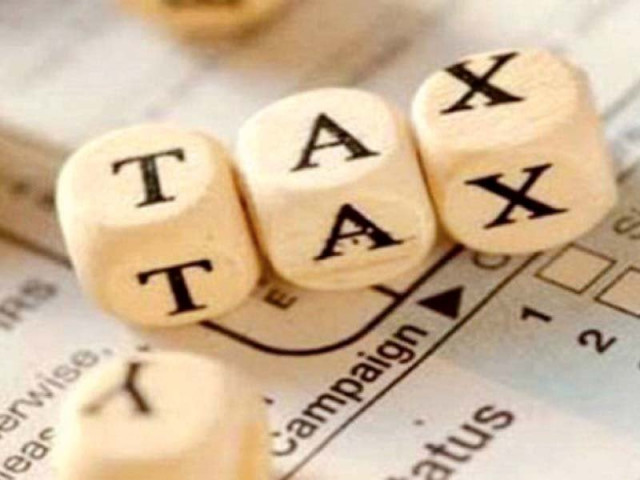Govt gives Rs20b tax relief to richest class
Reduces tax liability on inter-corporate dividends by amending Section 103C of IT Ord

PHOTO: CREATIVE COMMONS
Through the Finance Bill 2019, the government has reduced tax liability on inter-corporate dividends by amending Section 103C of the Second Schedule of Income Tax Ordinance, which deals with group companies’ income tax relief.
In an attempt to keep the exemption hidden from the International Monetary Fund (IMF), the government has not disclosed the loss in budget books, which it will suffer from tax exemption on dividend income for group companies, said sources in the Federal Board of Revenue (FBR).
In the budget, the PTI government has burdened every income group, irrespective of whether it has the capacity to bear the additional burden or not, but has favoured the richest class by providing them tax break.
Pakistan loses record Rs972.4b in tax exemptions
Big firms had been demanding the favour for the past three years but former finance minister Ishaq Dar resisted it for two years, confirmed sources in the FBR. In 2016, the FBR estimated the cost of dividend tax exemption at Rs14 billion.
Pakistan’s largest banking, cement, car manufacturing, textile, fertiliser and food companies will be the beneficiaries of the Rs20-billion exemption. Some of the owners of these companies are among Pakistan’s top 10 richest people.
Through the Finance Bill 2019, the government has proposed amendment to Section 103C of the Income Tax Ordinance 2001. It has replaced the word “availed” with “eligible”.
The original Section 103C states, “dividend income derived by a company, if the recipient of the dividend, for the tax year has availed group relief under Section 59B”.
The replacement of one word has given nearly Rs20 billion in tax relief to the big corporate firms, said sources in the FBR. The exemption is against the policy that the government agreed with the IMF to withdraw tax exemptions.
The government has estimated the total cost of tax exemptions at Rs972 billion, which is exclusive of the new exemption given to the richest people in the budget.
Due to tough economic conditions, the PTI government has increased tax rates for the salaried class aimed at collecting Rs50 billion in additional revenue from them. But 40% of the additional revenue, which will be coughed up by the salaried class, will go into the pockets of a handful of big firms.
This negates the PTI’s claim that every income group will have to sacrifice for the cause of nation-building.
While explaining the rationale behind amendment to Section 103C during a meeting of the Senate Standing Committee on Finance, FBR’s Inland Revenue Policy member and its official spokesman Dr Hamid Atiq Sarwar said the companies were of the view that “without inserting the word eligible”, they would not qualify for the group tax relief.
Tribal lawmakers demand of govt to withdraw additional tax
Official version
When contacted, Sarwar said the proportionate exemption of inter-corporate dividend of group companies had some logic as it “avoids double taxation ie once at 29% at the hands of a company and then at 15% at the hands of recipient company”.
He said the amendment would encourage agglomeration of companies, which were related to or controlled by one set of persons but are fragmented for the purpose of inviting equity participation from public and other investors.
He pointed out that a more liberal and similar law existed till 2015.
Historical background
The group taxation concept had been introduced in 2007. Section 59AA of the Income Tax Ordinance allows group companies to file one income tax return and avail the benefit as one entity instead of multiple entities.
Subsequently, Section 59B was introduced with the intention of encouraging companies to acquire sick industrial units and claim tax exemptions by offsetting the income with the losses of acquired subsidiaries.
In 2008, Section 59B was also brought under the ambit of Section 59AA to exempt the inter-company dividend tax. However, former finance minister Ishaq Dar rectified this in 2016 and excluded Section 59B from the ambit of group taxation.
But through his second mini-budget, former finance minister Asad Umar allowed tax exemption on dividend income, subject to the condition that the taxpayer has “availed the group relief. The word “availed” means that tax losses have actually been surrendered between the two entities and only to the extent of shareholding that the parent company has in its subsidiaries.
But by inserting the word “eligible”, irrespective of loss or profit, the group companies have been exempted from payment of dividend income tax to the extent of their shareholding.
Published in The Express Tribune, June 25th, 2019.
Like Business on Facebook, follow @TribuneBiz on Twitter to stay informed and join in the conversation.


1733130350-0/Untitled-design-(76)1733130350-0-208x130.webp)
















COMMENTS
Comments are moderated and generally will be posted if they are on-topic and not abusive.
For more information, please see our Comments FAQ